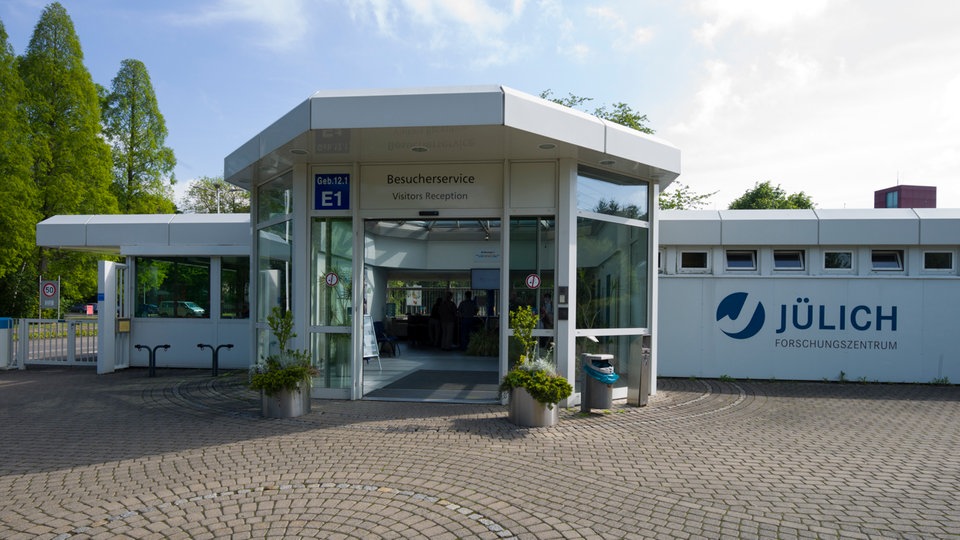Forschungszentrum Jülich is a member of the Helmholtz Association and, with around 6000 employees, is one of the largest research centres in Europe.
The Institute of Structural Biochemistry (IBI-7) focuses on the dynamic interactions between biological macromolecules and their correct three-dimensional structure, which are fundamental to the proper functioning of every cell and organism. Erroneous interactions and misfolded structures ultimately lead to disease and ageing.
Research:
Autophagy is the highly conserved process of degradation of cellular components in eukaryotes. Autophagy plays an important role in the basic turnover of intracellular proteins and organelles as well as in the production of amino acids under starvation conditions. The contribution to protein degradation by autophagy is similar to that of the ubiquitin-proteasome system. Disturbances in the regulation of autophagy can lead to various diseases, e.g. neurodegenerative diseases. Furthermore, autophagy plays an important role in antigen presentation or the degradation of invasive pathogens. Autophagy requires a whole series of so-called autophagy-related (Atg) proteins, whereby in higher organisms entire protein families have evolved from an original Atg protein. One such example is the ATG8 protein family, an extremely interesting family of small ubiquitin-like modifiers that has only one member in yeast. In humans, there are two subfamilies, the LC3s and the GABARAPs, with a total of seven paralogues. Among the diverse functions already described for human ATG8 proteins, their involvement in autophagic processes is currently best characterised.
However, GABARAP and its paralogues originally became known through their involvement in intracellular vesicular transport processes and surface expression of individual receptors. Due to their high structural similarity, the exact functions of the GABARAP subfamily and especially their individual contributions during such non-autophagic processes as well as their impact on higher-level processes (cell health, migratory capacity, etc.) are still almost unknown.
Project:
We are looking for people to join our research group as soon as possible. You will support us by systematically analysing existing, genome-edited human cell lines lacking the entire GABARAP subfamily or individual representatives for their viability (cell proliferation, apoptosis, cell cycle assays), but also for their migration ability, spheroid formation or surface expression of certain marker proteins.
A modern live cell analysis system is available for this purpose, with which images (phase contrast, bright field, fluorescence) can be recorded in real time on a single cell basis directly in the incubator without interference and then analysed in a software-based manner.
Your task:
- Cultivation of mammalian cell lines
- Automated real-time live cell microscopy (Incucyte SX5)
- Perform cell proliferation, apoptosis and optionally cell cycle assays
- Establishment of a multi-spheroid assay (optional)
- Establishment of a live cell immunocytochemistry assay (optional)
- Data analysis using existing software modules, Prism (GraphPad) and ImageJ/Fiji
- Planning, implementation and evaluation of experiments; presentation of results
- Documentation of your results in our electronic laboratory book system
This project can be adapted in terms of scope and allows for the preparation of both Bachelor's and Master's theses.
Your profile:
We look forward to receiving applications from students (f/m/d) of biology, biochemistry, biotechnology or related fields. You should have initial experience in the cultivation of mammalian cell lines. Experience with software for graphical processing of experimental data is an advantage. In any case, you should be motivated to familiarise yourself with various software packages. After a detailed instruction, we expect that you will be able to work independently on the project according to your level of education. Social competence, efficiency, accurate work, enjoyment of teamwork and a high level of self-motivation in establishing new experimental procedures and solving scientific problems are also expected.
Our offer:
Your workplace is assigned to the working group Hoffmann in the IBI-7 (Structural Biochemistry) department of the Institute for Biological Information Processes (IBI) at Forschungszentrum Jülich. We place great emphasis on teamwork and excellent supervision. In the interdisciplinary IBI-7 you will meet scientists from a wide range of nations from the fields of biochemistry, biology, chemistry, medicine, pharmacy and physics. For further information on IBI-7, please click on the following link: https://www.fz-juelich.de/ibi/ibi-7. You can also find news about our research here: https://www.ipb.hhu.de/unsere-teams/arbeitsgruppe-hoffmann. You can start work immediately or by arrangement.
Application:
Interested persons are invited to apply with a project-relevant presentation of their education. Forschungszentrum Jülich promotes equal opportunities and diversity. We welcome applications from people with disabilities. Please send your documents (motivation letter, CV, certificates or current grades) by e-mail to
Dr. Silke Hoffmann (si.hoffmann@fz-juelich.de).
Forschungszentrum Jülich
Institute of Biological Information Processing
Structural Biochemistry (IBI-7)



No comments:
Post a Comment